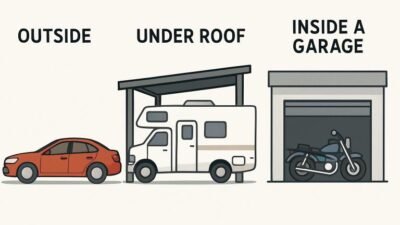Why Used Cars Are Worth Considering
Opting for a used car can be one of the wisest financial moves you make, offering significant savings compared to buying new. When a new vehicle is driven off the lot, it can lose up to 20% of its value in the first year alone, making pre-owned vehicles an attractive option for cost-conscious buyers. Additionally, used cars often have lower insurance premiums and registration fees, stretching your budget further without sacrificing quality.
Checking out local dealerships can be an excellent starting point when considering your options. If you’re looking for affordable, reliable choices, you can explore a curated selection of used cars in your area to get a sense of availability and pricing.
Beyond finances, choosing a used car can also have a positive environmental impact. Extending a vehicle’s lifespan reduces the demand on manufacturing resources and helps limit waste, allowing you to make a smarter and greener investment in your next vehicle.
Setting Your Budget
Establishing a realistic budget is crucial for a successful used-car buying experience. Determine your monthly income, including insurance, maintenance, registration fees, and repairs. Aim for 15-20% of your income for car payments. Calculate the total cost of ownership before making decisions, such as a monthly commitment of $370 for $250, $80 insurance, and $40 maintenance. Allocate funds for taxes and unexpected expenses for peace of mind throughout the ownership journey.
Doing Your Research
Research is crucial for a confident shopping experience. Start by compiling a list of reliable makes and models, using industry publications, consumer feedback, and ratings. Compare vehicles across model years to find the best performance, price, and features. Explore owner forums and expert reviews for common issues, maintenance costs, and satisfaction.
Essential Inspection Checklist
Inspecting a used car is critical, whether you’re buying from a dealer or a private seller. Here’s a practical checklist to guide your assessment:
- Exterior:Examine for rust, dents, mismatched paint, or uneven panels.
- Interior:Check for tears, stains, worn seats, and if all electronics function as expected.
- Under the Hood:Look for oil leaks, cracked belts, corroded battery terminals, and check fluid levels.
- Tires:Assess tread depth, look for uneven wear, and confirm all tires match in brand and age.
Understanding Vehicle History Reports
Vehicle history reports are your window into a car’s past. Reliable reports will detail accident history, the number of previous owners, and service records, which are crucial for verifying that the car hasn’t been subject to flood damage, major accidents, or frequent repairs. Obtain reports from trusted providers, such as Carfax or AutoCheck, and look for red flags like inconsistent odometer readings, a history of salvage titles, or missing maintenance milestones. Uncovering these warning signs early can save you from serious problems.
Test Driving Smartly
A test drive is critical to confirm whether a car meets expectations. During your test drive:
- Listen for unusual sounds from the engine or suspension.
- Test brakes for responsiveness and even pressure.
- Check that the steering feels smooth and doesn’t pull to one side.
- Ensure all comfort features—AC, heat, windows, infotainment—function properly.
Many buyers discover issues only during a thorough test drive, such as subtle transmission slips or persistent dashboard warning lights. Take your time and try to replicate your normal driving conditions to spot any hidden problems.
Negotiation Tactics That Work
Negotiating a used car price involves research and a calm, evidence-based approach. Use inspection results and vehicle history to justify your offer. Be prepared to walk away if the terms don’t meet your budget. Confidence can also lead to savings or perks like free maintenance or extended warranties.
Conclusion
Purchasing a high-quality used car doesn’t have to be nerve-wracking. By setting a smart budget, researching thoroughly, performing careful inspections, and protecting your purchase, you can make a confident decision and enjoy significant savings. Stay vigilant, use trusted resources, and take your time to ensure a successful, stress-free used car buying experience.



